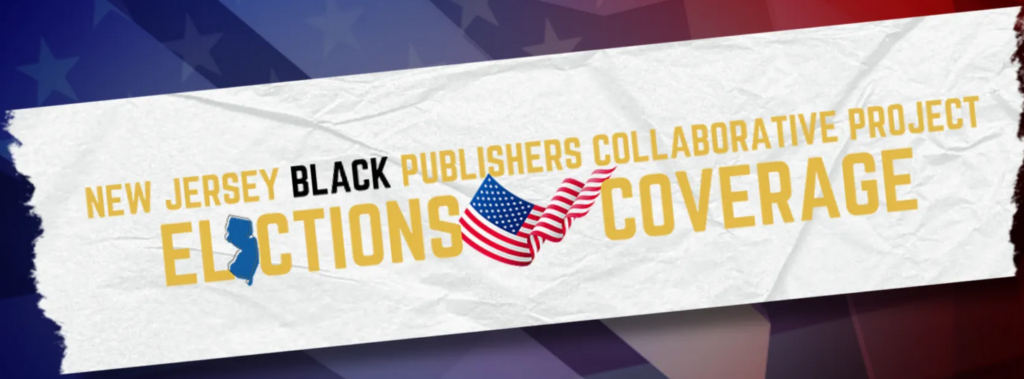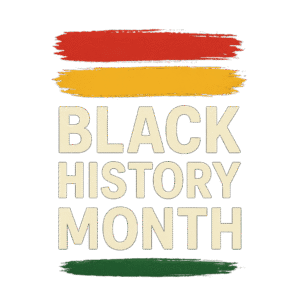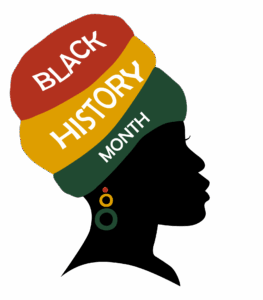Young Black Voters on 2024: ‘Does Our Vote Really Matter?’

This story was produced as part of the NJ Black Publishers Election 2024 Collaborative
Coverage, in partnership with the Center for Cooperative Media at Montclair State University. Find the link to the original story here.
BY TENNYSON DONYEA | Black in Jersey
Young Black voters face a mix of motivation and frustration as the 2024 presidential election nears. While studies show that Millennials and Gen Z are generally more open to progressive policies and diverse perspectives, many young voters have grown disillusioned by the government’s failure to address issues that directly impact them.
Over the years, young Black voter turnout has fluctuated, peaking and dipping in response to the political and cultural landscape. In 2008, young Black Americans turned out in record numbers to elect Barack Obama as the first Black president of the U.S., inspired by his messages of hope and optimism. That year, Black Americans aged 18 to 29 voted at higher rates than any other racial group of the same age, according to the Pew Research Center.
The Democratic Party hopes to recapture that energy with Vice President Kamala Harris’s presidential bid. If elected, she would become the first woman of color to hold the office.
Yet, the vibes in 2024 are not the same as they were in 2008. Many young people say that not much has improved over the past four years, particularly on critical issues like student debt, climate change, and affordability.
Some polls, such as one from Cal Berkeley’s Institute of Governmental Studies, suggest that many young people are uncertain about whether they plan to vote at all this year.
A related study conducted by the Berkeley Institute for Young Americans suggests that widespread fatalism — the feeling that life’s events, including politics, are shaped primarily by fate — could contribute to voter apathy among youth.
“I get why people don’t want to vote,” said Zolanni Warren, a college sophomore from Newark. “The Electoral College [decides] who’s going to be president. So, in a sense, our vote really doesn’t matter.”
Warren, who plans to vote on November 5, said she feels “stuck” between two candidates: Kamala Harris and Green Party candidate Jill Stein. She expressed that neither Kamala Harris nor the Republican nominee, former President Donald Trump, has sufficiently addressed her needs during this year’s campaign. She believes it may be too late for Jill Stein to gain traction with mainstream voters.
“Based off the presidential debate, I feel like they both didn’t really talk about policies as much. It was more so jabs at each other,” Warren said.

Allegresse Hungoni, a Jersey City native and sophomore at St. Peter’s University, said she is also on the fence about voting this year.
“Having to pick between the lesser of two evils, I feel like that’s the type of election we’re in at the moment,” Hungoni said. “Both candidates presented to us have bad sides that we have all seen. So, it’s kind of like, which way do I go? And then, if I still don’t choose, that’s choosing.”
“Neither of them seems to be a good option,” Hungoni added.
Hungoni and Warren bring unique perspectives to the conversation about voting, especially as two young Black women.
Hungoni mentioned that no one in her immediate family votes.
“I feel like that mindset [my family] had kind of got instilled within me. So, I never really thought about [voting] until this year,” Hungoni said.
Warren acknowledged the historical struggles for civil rights, including voting rights, that her ancestors endured. But she remains skeptical about whether Harris truly represents her interests.
“At first, the idea of [having a Black woman president] and the look of it seemed really cool,” Warren said.
Warren also feels that both major parties have pandered to young Black people in ways that often seem out of touch or offensive. She pointed to Megan Thee Stallion’s recent “Hotties for Harris” performance at a Harris rally and rapper OT7 Quanny’s support for Trump as examples.
“I feel like they think we’re just strictly hip hop, and it’s just like, no, we need our rights,” Warren said.
Both women expressed ambivalence when asked whether Harris’s identity as a Black woman influenced their support.
“To me, it doesn’t matter, like, the fact that she’s a woman and that she’s Black, I mean, I think it’s cool,” Hungoni said. “I guess it’s good representation. And I think that a lot of Black people [will be swayed by that].”

Does ‘Souls to the Polls’ Still Work for Young Voters in 2024?
On Oct. 9, Black faith leaders and organizations from New Jersey gathered at Fellowship Baptist Church in Trenton to strategize for the election and encourage community members to vote.
Racquel Romans-Henry, policy director at Salvation and Social Justice, emphasized the critical role of Black religious institutions in fostering civic engagement.
“Dr. (Martin Luther) King was only in his 30s when he passed away. Malcolm X, the same thing,” Romans-Henry said. “So I think, we have to realize that young people are the movement. And traditionally, the movement’s always happening within Black faith communities.”
Romans-Henry also sought to dispel the stereotype that young Black people are generally apathetic about voting.
“I think all of that couldn’t be further from the truth,” Romans-Henry said. “People know exactly what’s at stake. They feel it in their day-to-day life. I think where the gap comes in is that those of us who are in a position to mobilize and to strategize, we failed to really communicate how what’s happening in DC affects people every day on the ground.”

Rev. Eric Dobson, Senior Strategic Advisor to the Executive Director of the Fair Share Housing Center, argued that the Democratic Party has struggled to connect with young Black people.
“The Democratic Party has rejected young, Black people,” Dobson said. “They don’t produce candidates that inspire young Black people. The last time they did that was President Obama. I was a staff member in that campaign. The National Democratic Party wasn’t supporting him. We forget that he organized around that. So I’m keeping it real. When the Democratic machine produces a candidate that will inspire young people, they’ll come out and vote. But if they don’t do that, they still won’t come out.”
Recent polling shows Donald Trump gaining traction among Black voters, particularly Black men, though Harris still enjoys broader support among Black voters overall.
“I’ve heard a lot of Black Trump supporters. I think I know more Black Trump supporters than others,” Hungoni said.

Young Black voters are vocal about their expectations for tangible improvements: affordable education, dignified work, and the opportunity to start families without financial strain. They also want systemic changes in policing and public spending.
“Young Black voters want to be able to go to school, not have the payments break their backs,” Romans-Henry said. “They want to be able to get a job that’s dignified. They want to be able to start a family. They don’t want to have to live with their parents until they’re 40 years old. They want to be able to walk a life that honors all that they can bring forth to the table.”
Romans-Henry emphasized that politicians understand these demands but often overlook them. “So I think those in elected positions need to stop fooling themselves and saying that they don’t understand what it is that young Black voters want because they’ve been nothing but communicative about exactly what’s at stake.”
Follow Us Today On:
LinkedInNote from AC JosepH Media: If you like this story and others posted on Front Runner New Jersey.com, lend us a hand so we can keep producing articles like these for New Jersey and the world to see. Click on SUPPORT FRNJ and make a contribution that will go directly in making more stories like this available. Thank you for reading!




